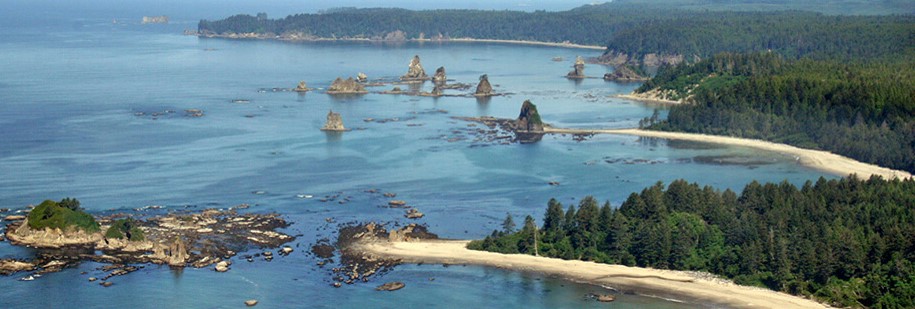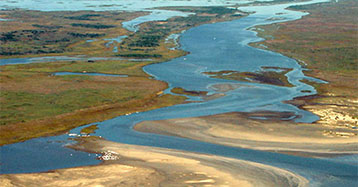Ecosystem Service Valuation
Natural habitats can provide ecosystem services, like protection from coastal storms, habitat for wildlife, and outdoor recreational opportunities that benefit communities and the people that live there. Assigning a value—whether economic, social, or cultural—to the services provided by ecosystems allows managers to compare management options, such as whether to develop or conserve a natural area, and know how much a community saves in flood risk management or heat control through investment in natural ecosystems. NCCOS identifies, measures, and estimates the value of ecosystem services for use by coastal communities, planners, managers, and regulators.
Identify Baseline Values
NCCOS conducts research to collect baseline valuation data to help resource managers understand the values society places on ecosystem services. People and communities value special places and ecosystem services, products, and functions for a variety of reasons. For instance, a commercial fisherman may value a specific cove because it supplies ample fish to sell at market. Another person might value that same cove because it serves as a special gathering place for family. In addition to location, people value ecosystem service functions, such as water filtration, as well as products or resources, such as fish or beaches. Through a variety of methods, NCCOS researchers identify and estimate baseline values, and assign to them social, cultural, or monetary worth. Once baseline values are established, changes in values can be tracked over time.
Characterize Sociocultural Attachments
People, both individually and as groups, develop special bonds to physical places, such as neighborhoods, beaches, or coral reefs. These attachments result from our knowledge, experiences, heritage, and socialization, or a combination of these. The nature and strength of these place-based attachments are indicative of people’s values for ecosystems, along with the services that they provide. NCCOS conducts research to characterize place-based attachments and non-economic values for marine and coastal resources and special places. This is useful because sociocultural values can be different from monetary values. Awareness of place-based attachments and non-economic values can help decision-makers better manage these resources for society.
Estimate Change to Values
The values and attachments that people attribute to natural resources and special places are often related to the condition or status of those resources and locations. It is possible, then, for people’s values and attachments to shift as the condition of a resource or special place changes. For example, if a waterfront park becomes unkempt and littered with debris, some values associated with that location may decrease. Researchers can analyze data to estimate how changes to resource condition may influence associated changes in people’s values and attachment.
Partnerships
We work very closely with managers at the National Ocean Service Special Places—NOAA’s National Marine Sanctuaries and National Estuarine Research Reserves—to value ecosystem services and connect those results to policy actions and adaptive
management plans.




